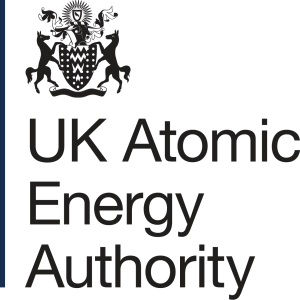What is a trade mark?
A trade mark is a sign that indicates the commercial origin of particular goods or services. The sign can be a word, number, logo, shape, colour, sound, and potentially even a taste. Trade marks enable consumers to distinguish the goods and services of one business from those of other businesses. Trade marks are an important company asset; they can indicate the quality and source of goods and services and therefore goodwill can become attached to the trade mark, over time.
Registering a trade mark enables the proprietor to stop others from using the trade mark or a similar trade mark without their permission; it provides an exclusive right to use the mark for the goods and services covered. The ® symbol can only be used on trade mark registrations and helps to indicate to third parties that the brand has been protected. Trade marks are valuable commercial property that can be bought and sold, licensed, franchised or used to generate or raise funds (via mortgages or other loans).
Trade mark rights are territorial and a trade mark registration is only valid in the country of registration. However, there are international trade mark systems that provide broader coverage, for instance a European Union Trade Mark will provide protection throughout the European Union with only one registration. Trade mark registrations can last indefinitely if renewed every ten years.
What does a Chartered Trade Mark Attorney do?
A Chartered Trade Mark Attorney is a lawyer who is specifically qualified to advise on trade mark law and acts as an agent for the purposes of applying for and obtaining trade mark registrations. Chartered Trade Mark Attorneys advise clients on a range of trade mark issues, and they act on behalf of their clients before the UK Intellectual Property Office (the government body responsible for intellectual property rights) and the European union Intellectual Property Office (EUIPO), which deals with EU Trade Marks.
They will often work with associates in other jurisdictions to apply for and obtain trade mark registrations throughout the world, as necessitated by their clients’ needs.
A Chartered Trade Mark Attorney will assist clients in selecting new trade marks and ensuring that the chosen trade mark is both capable of and available for registration.
Once a trade mark has been selected, the attorney will be responsible for representing the client in seeing the trade mark through to registration.
Chartered Trade Mark Attorneys manage trade mark portfolios, and for multi-national clients, a portfolio of trade marks can include tens of thousands of pending applications and registrations. Work may range from auditing the trade marks and advising on the suitability of trade mark protection, through to handling licenses and assignment agreements.
Managing conflicts is a major part of a Chartered Trade Mark Attorney’s role. Attorneys may represent their client in legal proceedings to prevent others from registering identical or similar trade mark rights, or they may find themselves defending a client accused of infringement.
Finding commercial resolutions to disputes and representing clients in settlement negotiations is part of an Attorney’s practice, as litigation is seen as a last resort. It is often possible for two similar brands to co-exist if they are not in direct competition and they agree not to interfere with each other.
A Chartered Trade Mark Attorney will be expected to seek pragmatic resolutions to conflicts and will draft letters of consent and co-existence agreements.
Trade Mark Attorneys are regulated by the Intellectual Property Regulation Board and are listed on the public Register of Trade Mark Attorneys.
How do you qualify as a Chartered Trade Mark Attorney?
Qualification for admission to the Register of Trade Mark Attorneys is a combination of the passing of qualifying examinations combined with relevant experience in the profession.
A Chartered Trade Mark Attorney will typically have an arts or a legal background before specialising in trade marks, however this is not essential. An undergraduate degree is required and no particular discipline seems to be favoured.
The qualifying examinations are made up of two courses. The first course covers the intricacies of trade mark law, and this is followed by a skills-based course that teaches the practical application of that law.
At least two years of experience of full-time practice in trade mark attorney work is required, under the supervision of a registered Trade Mark Attorney, Solicitor or suitably related person. The courses tend to be designed to suit students who are undertaking their studies whilst in full-time employment.
It is most likely that a trainee will be employed by either a specialist firm of Trade Mark Attorneys, a firm of Patent Attorneys, or a general law firm with a trade mark department.
Qualification can be expensive and a large proportion of students will have their courses funded by their employers. It is common for the qualification process to take around four years.
There are exemptions available for solicitors or barristers who want to qualify as Chartered Trade Mark Attorneys.
What does a typical day involve?
No two days are ever the same and the work is incredibly varied. A day’s work tends to be dictated by upcoming deadlines.
Clients can range from individual entrepreneurs to multi-national corporations with in-house legal departments.
It is common to meet with a new client to devise a tailor-made strategy for trade mark protection. Chartered Trade Mark Attorneys need to gain a firm understanding of the nature of their clients’ businesses and commercial objectives. When drafting a specification of goods and services, it is important to consider how a client’s business might develop in future.
Part of a Chartered Trade Mark Attorney’s role includes helping clients to choose new brand names, and conducting clearance searches to ensure the brand has not already been registered by a third party. Attorneys will also advise on the ‘registrability’ of a trade mark in consideration of the legal requirements, for instance, a trade mark must not be descriptive or generic.
A typical day might involve handling and overcoming objections to a client’s trade mark application before the official registries, and preparing evidence and submissions in contentious matters.
In the age of the internet, the world has become smaller, and clients are increasingly seeking international protection. It is common to work with foreign associates to achieve that aim.
What are the career prospects?
There are approximately 700 Chartered Trade Mark Attorneys in the UK and around one third are dual-registered as Patent Attorneys.
The majority of Chartered Trade Mark Attorneys are employed in trade mark and patent attorney firms or solicitor firms (this is known as working in private practice).
With experience, Chartered Trade Mark Attorneys can move into senior management positions and reach partnership within a firm.
A growing number of multi-national corporations have in-house legal departments that employ Chartered Trade Mark Attorneys (this is known as working in industry). It is not uncommon for individuals to move between industry and private practice (and vice versa).
Many Chartered Trade Mark Attorneys are sole practitioners as well.
Chartered Trade Mark Attorneys have the option of acquiring and exercising broader rights to conduct litigation and to be heard before the Intellectual Property Enterprise Court, the High Court, and for some consequent appeals, before the Court of Appeal and the Supreme Court.
It is a niche, rewarding profession in an area of law that is constantly evolving, which keeps the work challenging and interesting. The social aspect is very good, with CITMA (the Chartered Institute of Trade Mark Attorneys) organising regular meetings and events.





